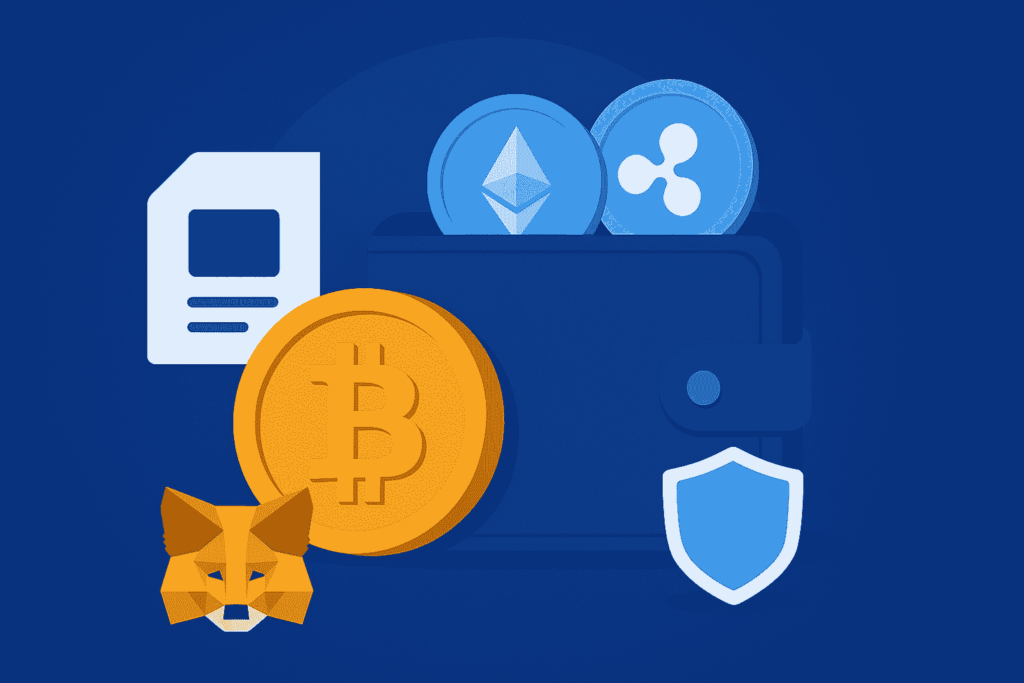
A crypto wallet is a digital tool that allows users to store, send, and receive cryptocurrencies. Unlike traditional wallets, they don’t hold physical money but store cryptographic keys that provide access to blockchain-based assets.
There are two essential elements:
- Public Key: Works like your bank account number, shared to receive funds.
- Private Key: A secret code that gives ownership and control over funds.
Without wallets, crypto trading and ownership would not be possible.
Types of Crypto Wallets
Choosing the right wallet is essential. Let’s break down the main categories:
Hot Wallets (Online Wallets)

- Connected to the internet.
- Convenient for frequent transactions.
- Examples: MetaMask, Trust Wallet, Phantom.
- Risk: Higher exposure to hacks.
Cold Wallets (Offline Wallets)

- Not connected to the internet.
- Best for long-term storage.
- Examples: Ledger, Trezor.
- Advantage: Much safer against online attacks.

| Wallet Type | Connectivity | Security Level | Best For |
|---|---|---|---|
| Hot Wallet | Online | Medium | Daily use |
| Cold Wallet | Offline | High | Long-term holding |
How to Use a Crypto Wallet
Step 1: Choose the Right Wallet
Select based on needs: traders prefer hot wallets, while long-term holders rely on cold wallets.
Step 2: Setup and Backup
- Download/install the wallet app or connect a hardware wallet.
- Write down your seed phrase (usually 12–24 words).
- Store it offline — never share it.
Step 3: Sending and Receiving Crypto
- To receive: share your public address.
- To send: enter the recipient’s address, confirm fees, and sign with your private key.
Step 4: Security Practices
- Enable 2FA (two-factor authentication).
- Use hardware wallets for large holdings.
- Regularly update wallet apps.
Risks and Security Tips
- Phishing attacks – Fake sites mimic real wallets.
- Lost keys – If you lose your private key, funds are unrecoverable.
- Exchange risk – Keeping funds on centralized exchanges is less secure than private wallets.
🔒 Best Practice: Always control your private keys — “Not your keys, not your crypto.”
On-Chain Perspective
Recent blockchain data shows that:
- Over 70% of Bitcoin supply is held in cold wallets for more than 6 months.
- Wallet activity spikes often correlate with market tops (when whales send coins to exchanges).
This highlights how wallet data can predict investor sentiment and market moves.
Why Wallet Choice Matters
- Traders → Need speed and easy access → hot wallets.
- Investors/HODLers → Need security → cold wallets.
- Institutions → Use multi-sig wallets for team access and higher security.
Making the wrong choice can mean losing funds or missing opportunities.
Conclusion
A crypto wallet is more than just a storage tool — it’s the foundation of safe digital asset management. Whether you’re trading daily or holding for years, selecting the right wallet and securing your keys is essential.
⚠️ This article is for educational purposes only and not financial advice.





